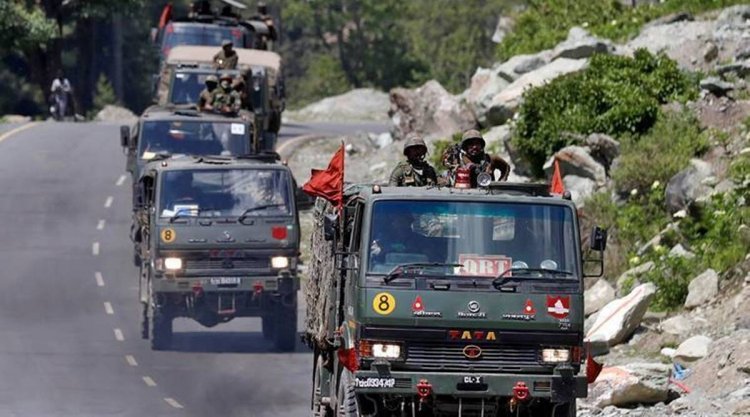Jammu and Kashmir: Considering withdraw of Army
Asia News Agency

It is understood the government is discussing a proposal to withdraw the Indian Army completely from the Valley hinterland. If approved, the Army will have presence only on the Line of Control (LoC). It is proposed that the CRPF (Central Reserve Police Force) would fill in for the army personnel removed from the Valley to meet the challenges of both law and order and counter-terror operations.
“The matter is under serious discussion at inter-ministerial level and it is understood to be feasible. In a way, the decision has been taken and it is a matter of when it will be done. Ultimately, however, it will be a political call,” a senior security establishment officer told The Indian Express.
According to officials, the Army maintains a strength of around 1.3 lakh personnel in the entire J&K of which around 80,000 are deployed on the border. About 40,000-45,000 personnel from the Rashtriya Rifles (RR) have the mantle of conducting counter-terror operations in Kashmir’s hinterland.
The CRPF is said to have a strength of close to 60,000 personnel in J&K, of which more than 45,000 are deployed in Kashmir Valley. J&K Police is 83,000 strong. Apart from this, a few companies from other Central Armed Police Forces (CAPF) remain deployed in the Valley. The figures for CAPFs fluctuate depending on the security situation in the Valley.
Objective behind the move: The idea behind the deliberations is to not just claim normalcy in Kashmir but also make it visible. The government claims that terrorist violence incidents and killing of security personnel in J&K have reduced by almost 50 per cent since August 5, 2019, compared with the same period before it.
Political pressure: Political parties in J&K as well as some wings of the government have been pushing for a complete withdrawal of the Army. This has gathered momentum in recent months with many in the government impressing upon the political leadership that the claims of normalcy may be followed with action such as the phased removal of Army from the Valley’s districts.
Sources in the security establishment said that in the discussions it was proposed that the Army be withdrawn in a phased manner.
Counter-terror operations in the Kashmir Valley are carried out by the Indian Army with the support of CRPF and Jammu and Kashmir Police. Since the onset of militancy in the Valley, the Army has had a primary role in not just stopping infiltration at the border but also thwarting terror attacks and eliminating militants inside Kashmir.
Welcome move
It is welcome, writes The Indian Express that such a discussion is taking place. “Excluding paramilitaries, the number of Army soldiers in J&K is said to be in the region of 1.7 lakh. This number includes the soldiers posted along the 740-km Line of Control with Pakistan. The Army went into J&K in the 1990s, at a time when the Valley was engulfed by militancy and terrorism, and the police force of the erstwhile state was not adequately equipped to handle what was then a violent secessionist situation with cross-border ramifications. Stationing soldiers indefinitely to keep a check on civilians is not good for the Army or for the people…..”
Proposal has merit
In the end, the proposal, as it stands, writes Manvendra Singh (Congress leader, Editor-in-Chief of Defence & Security Alert and Chairman, Soldier Welfare Advisory Committee, Rajasthan) “certainly has merit, for any troop rationalisation must be welcomed. But the rider remains that the motives must be operational logic and not monetary as workforce expansion continues elsewhere.
“Essentially, the government is giving two lines of reasoning to explain the reduction in the number of troops. The first, obviously, is the simpler one about enough improvements in security in Kashmir. This cannot be challenged since the number of active militants in Kashmir has steadily dropped over the last two decades. Several State-sponsored studies and reports explain this decline. That is also why the demand to reduce Army presence has cropped up every now and then. But due to the cyclic nature of Kashmir’s problems, something always thwarts further developments.”
















